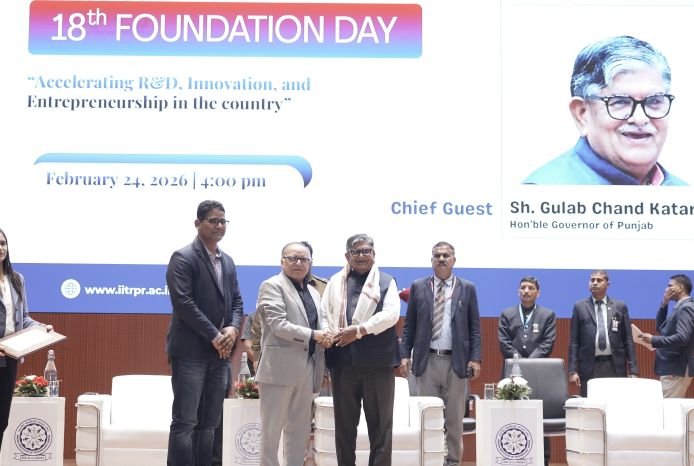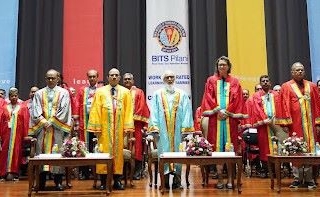By Kadambari Rana

Given the backdrop of our country’s demographics, which suffers from population explosion, large scale poverty and dismal accessibility to modes of communication, online education for school going children is ‘unworkable’.
Virtual classroom is the new normal. Efforts of several schools and teachers who are working round the clock to provide some semblance of continuation of education to school going children needs to be applauded. However, ‘online learning’which may appear to be the best alternative in the pandemic struck world, is not congruent to how children learn.Virtual learning suffers from two major drawbacks, one it is ‘unhealthy’ and the other it is ‘unworkable’.
According to the 15th Indian Census (16th Indian Census is due in 2021), 2011, Office of the Registrar General and Census Commissioner, Ministry of Home Affairs, Government of India; Children in the age group of 0-4 years constituted of 9.7% of the total population, children in the age group of 5-9 years constituted of 9.2% and children in the age group of 10-14 years constituted of 10.5% of the total population of India.
In absolute numbers children in the age group of 5-14 years were 259,637,338. This is also the age-group ‘entitled’ to education, as a state is mandate. Additionally, the number of children in the age group 15-19 years was 120,526,449, of which a large number certainly fall in the school-going group.
Total percentage of children (as per 2001 census) less than 18 years of age constituted of 41% of the population! If we are to keep these statistics as ‘ballpark’ figures then, the online school education has to reach atleast 259,637,338 children,which is excluding, the 120,526,449 children in the age group of 15-19 years.
In terms of access to means of communication;Dr C. Chandramouli, Registrar General and Census Commissioner, India, in the ‘Atlas On Houses, Households, Amenities and Assets’ highlights the following facts; Only 33.4% rural homes had television as compared to their urban counterparts of whom 76.7% household possessed televisions.
In terms of mobile phone access, only 48.0% of rural homes and 64.3% of urban homes possessed mobile phones. In 2020, even if the absolute numbers are larger, the mobile phones will have to be ‘smarter’ than before, with several additional features, if they are to be of any use for online education.
Around 5.2% of rural homes possessed a laptop/computer but only 0.7% of the rural households possessed a laptop or a computer ‘along with internet’ connection. Thesefigures did not look very promisingeven forurban India where 18.7% urban households possessed a computer or a laptop and those households which possessed a computer and a laptop ‘along with internet’ connection was only 8.3%.
Given the backdrop of our country’s demographics, which suffers from population explosion, large scale poverty and dismal accessibility to modes of communication, online education for school going children is ‘unworkable’.
Furthermore, if factors contributing to the low Gross Enrolment Ratio (GRE) and drop-out rates, in our country, are expanded to ‘now’ include health risks due to COVID-19 virus and poor accessibility to modes of virtual education, then the statistics staring at us would be even more frightening!
To make virtual education, if at all, workable ‘fast track’ distribution and subsidization of smart phones, laptops, computers with internet access will have to be initiated, which will be a herculean task. Schools in rural and urban areas, suffering from financial and technological constraints will need government support for upgradation.
Intensive and extensive teacher training programmes will have to be initiated for ‘grooming’ individuals into the online teaching mode.
Coming to the element of online schooling being ‘unhealthy’. Apart from internet security, privacy concerns and illnesses caused due to excessive gadget usage, the effectiveness of this mode itself is also questionable.
When compared to pre-schoolers and primary school children, senior students and adults are slightly better equipped, psychologically, to adapt to online school or online office because they have a larger memory bank of human interactions over the years, which younger children don’t.
This kind of ‘socialization memory bank’ allows us to tap on the feelings and experiences of in person interactions of the past and use it to feel ‘personally’ connected with teachers, co-workers, relatives and so on even during socially distanced times. But in younger children most of the faculties, including memory and abstract thinking are still developing, therefore younger children cannotrely on personal socialisation experiences of the past since it doesn’t make any concrete sense to them.
Children learn; problem solving and conflict resolution through cooperative activities and games, when they are outdoors, through sensory experiences such as touch, smell and taste, through non-verbal ques of the teacher such as gestures, signalling and body language, none of which is available in a virtual school.
Other factors which make online school education only a short term solution for all age groups are; children cannot truly learn in ‘isolation’, online education expects very high level of self-discipline which children are still developing, there is excessive stress on parents most of whom do not even understand the basics of child, adolescent or teenage behaviour, online classesare strictly time bound and too structured which puts the child, the teacher and the parent under immense performance pressure.
While efforts are being made for remote learning, strategies should also be drafted to bring children together and out of ‘isolated’ learning. The value of ‘real’ school experiencesis timeless and cannot either be undermined or replaced.
The writer is an independent educationist who is currently working on documenting her observations on children’s play and learning experiences.







